macOS 15 SequoiaのAVFの新機能によりApple M3チップ搭載のMacでLinux仮想マシンのネスト仮想化をサポートした仮想化ソフトウェア「UTM v4.6」のBeta版がリリースされています。詳細は以下から。
![]()
Intel/Apple Silicon MacやiPhone/iPad上に仮想マシンを作成できる仮想化ソフトウェアUTMシリーズを開発するUTM Projectは現地時間2024年10月03日、Appleが09月にリリースしたmacOS 15 SequoiaとApple M3チップ搭載のMacでLinux仮想マシンでネスト仮想化をサポートした「UTM v4.6.0」のBeta版をリリースしたと発表しています。
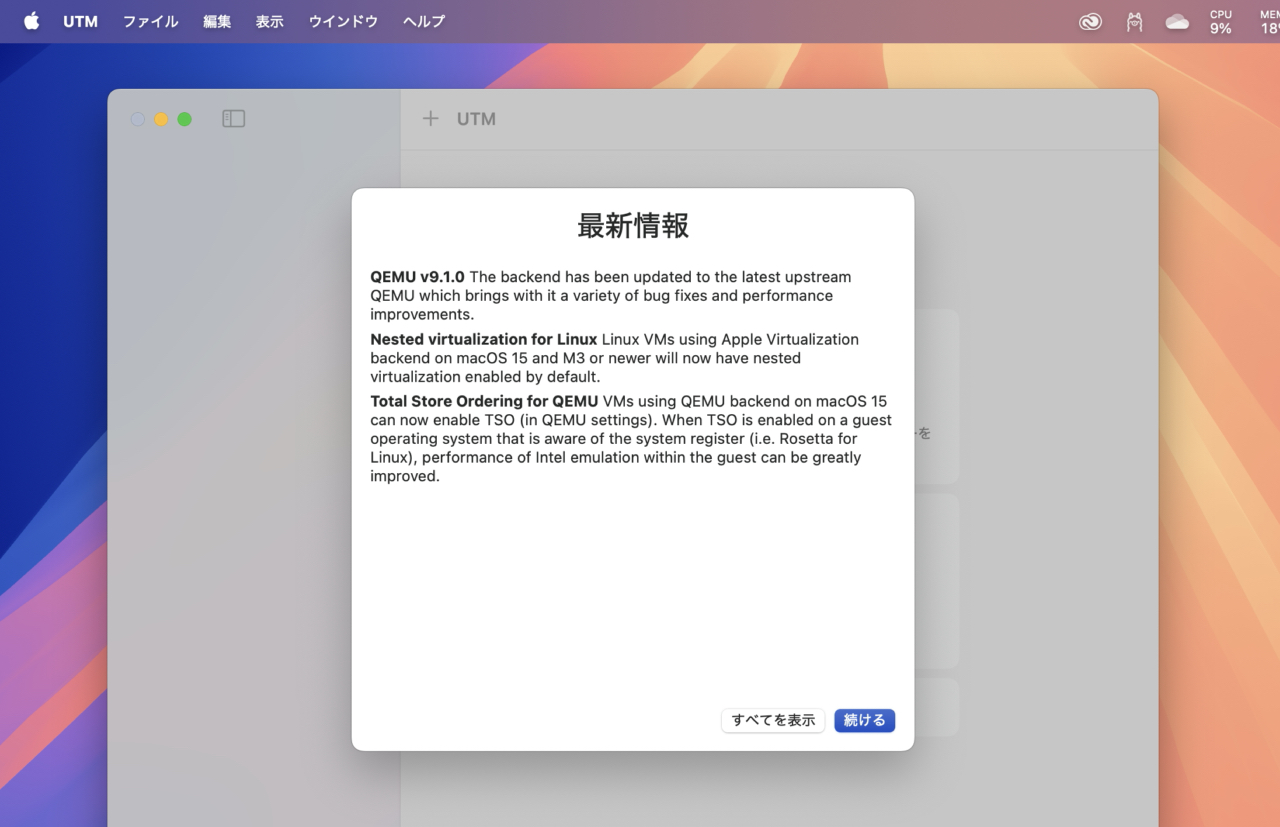
(macOS 15) Nested virtualization for Linux Linux VMs using Apple Virtualization backend on macOS 15 and M3 or newer will now have nested virtualization enabled by default.
リリースノートより抜粋
UTM for Mac v4.6 Beta
AppleはWWDC24でApple Virtualization Framework (AVF)に関するセッションを開かなかったものの、macOS 15 SequoiaでAVFをアップデートし、新たにmacOS仮想マシン内でiCloudアカウントを利用したサインインのサポート、
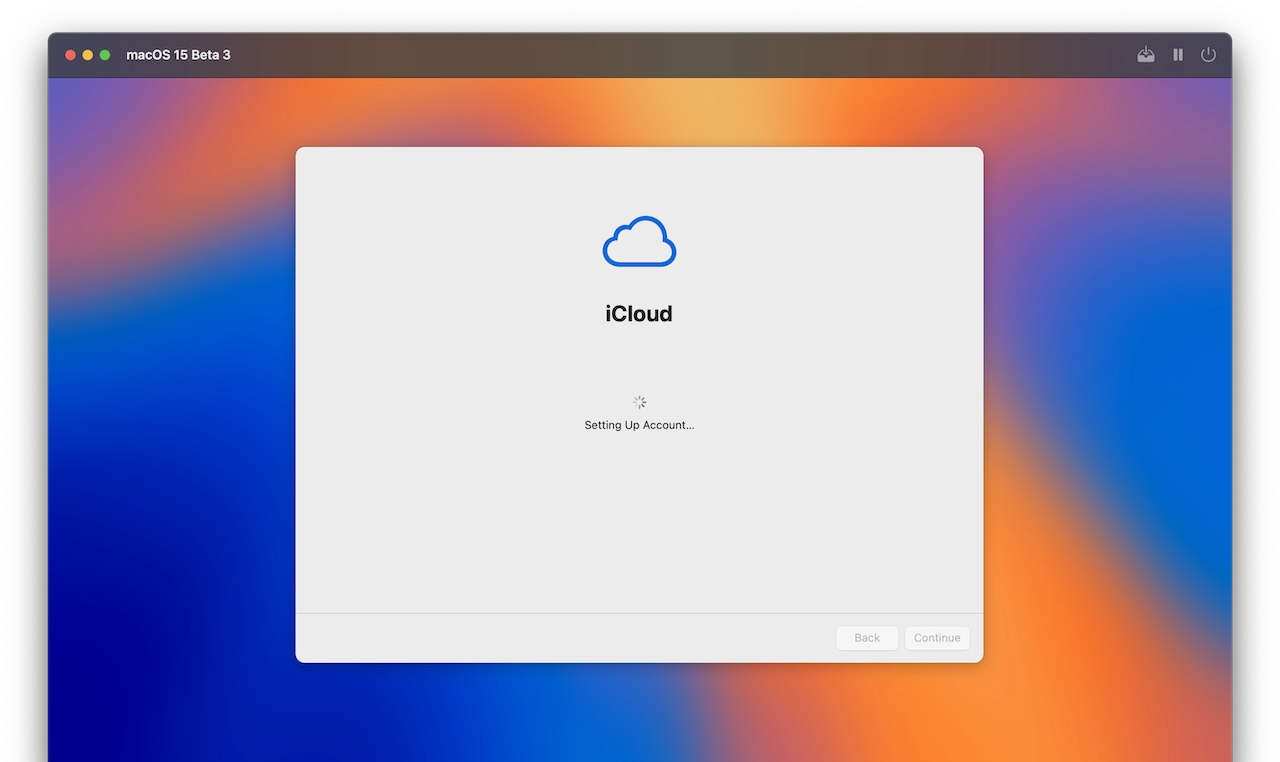
macOS 15 Sequoia内でiCloudサインインが可能に
更にApple M3チップを搭載したMac上に作成したLinux仮想マシン内でネスト仮想化(Nested Virtualization)をサポートすると発表されていましたが、UTM v4.6.0 Betaでは、このネスト仮想化がデフォルトで有効になっているそうです。
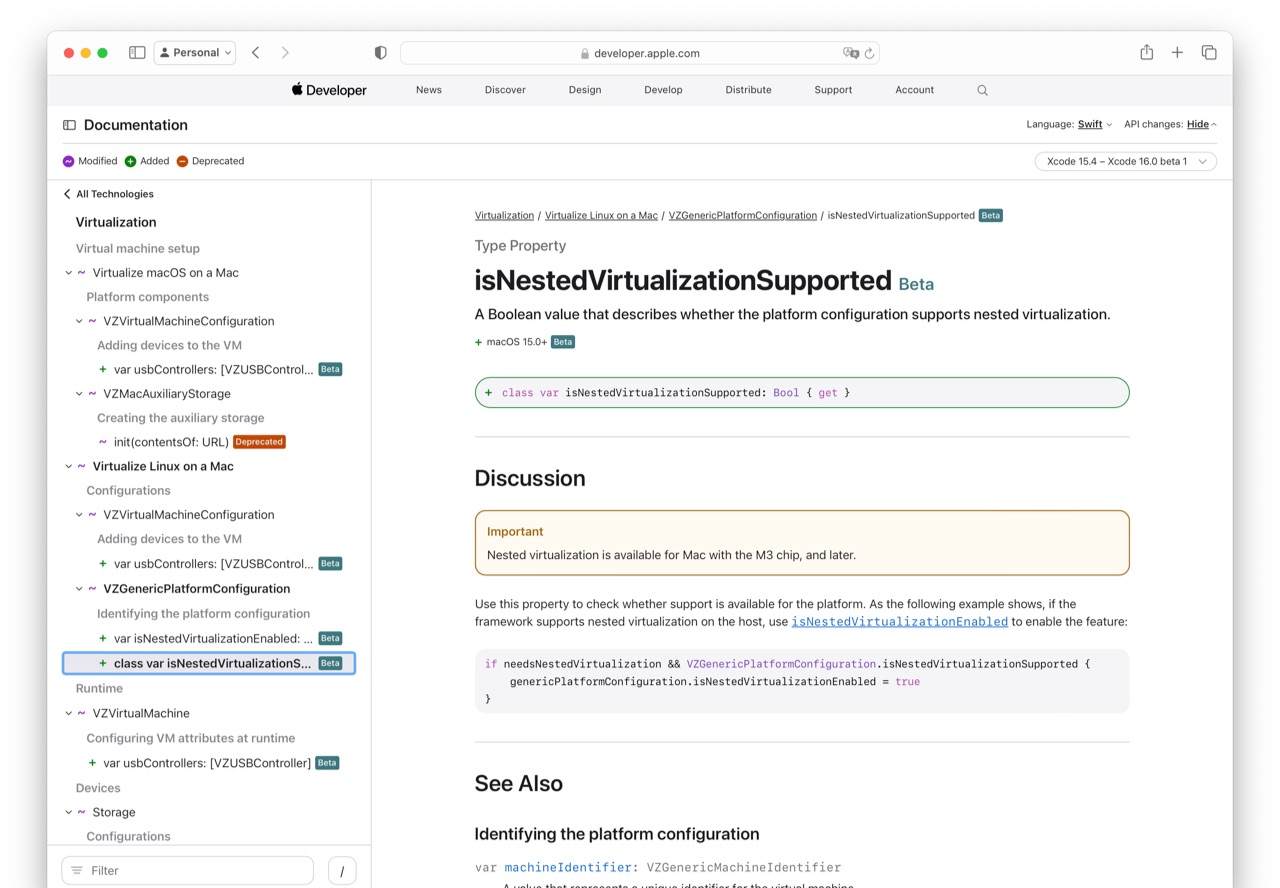
また、UTM v4.6.0ではバックエンドのQEMUがバージョン9.1.0へアップデートされパフォーマンスの向上が見込まれる他、macOS 15でQEMUバックエンドを使用する仮想マシンでTotal Store Ordering (TSO)の設定が可能になり、TSOを有効にすることでIntelエミュレーションのパフォーマンスが向上するそうです。
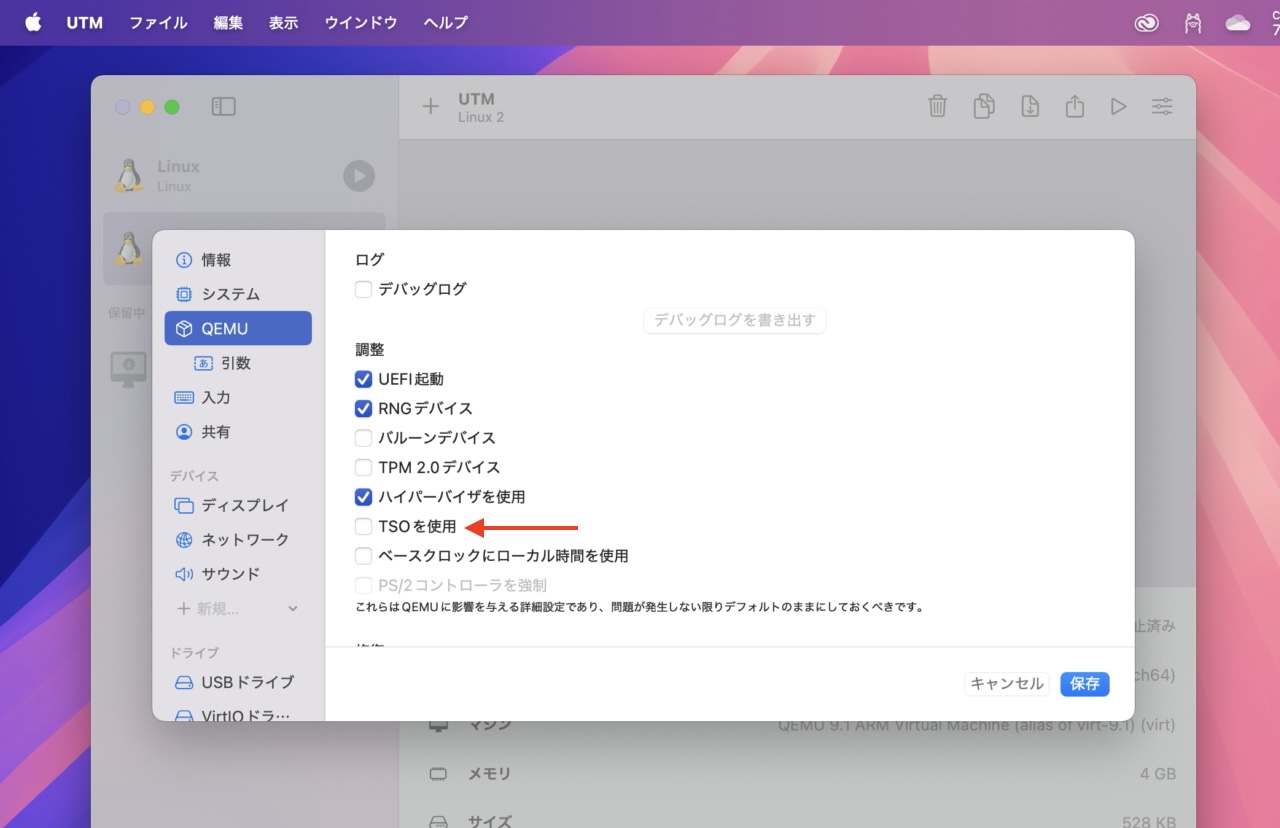
UTM v4.6.0 Betaは公式リポジトリからダウンロード可能ですが、注意事項としてmacOS 15へアップグレードしたMacでUTMを実行するとファイルへのアクセス許可がエラーになる不具合が確認されているそうなので、Betaユーザーの方はテスト環境で試してみてください。
UTM v4.6のHighlights
- QEMU v9.1.0 The backend has been updated to the latest upstream QEMU which brings with it a variety of bug fixes and performance improvements.
- (macOS 15) Nested virtualization for Linux Linux VMs using Apple Virtualization backend on macOS 15 and M3 or newer will now have nested virtualization enabled by default.
- (macOS 15) Total Store Ordering for QEMU VMs using QEMU backend on macOS 15 can now enable TSO (in QEMU settings). When TSO is enabled on a guest operating system that is aware of the system register (i.e. Rosetta for Linux), performance of Intel emulation within the guest can be greatly improved.
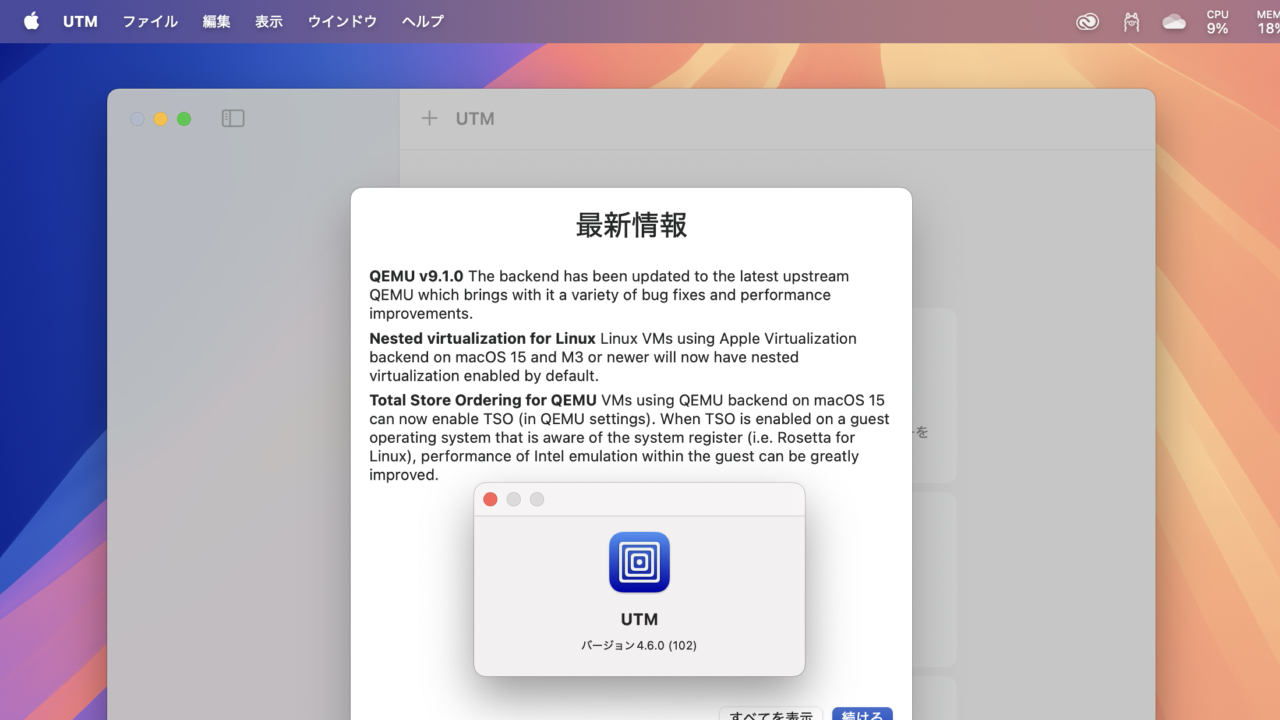


コメント